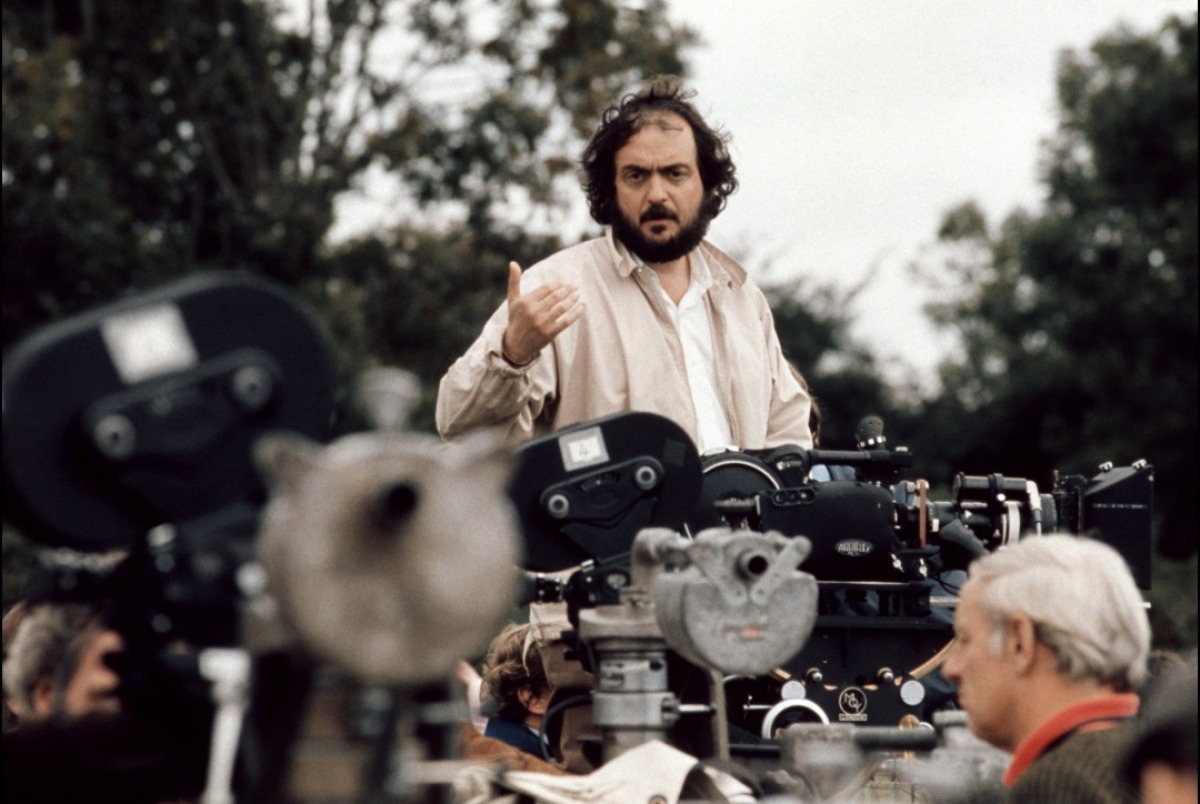The Minor Critic
A Kubrick Odyssey
In a New NOvel, The Famous Filmmaker Gets the Ready Player One Treatment

By Ethan DeWeese
 n Kubrick’s Game, the new novel by Derek Taylor Kent, a young, socially awkward, and obsessed film school student is offered a chance to unravel one of the greatest cinematic mysteries of all time. When a professor at UCLA gets a mysterious package from Stanley Kubrick fifteen years after Kubrick’s death, he shares the package’s contents with his student, Shawn. The package has a coded sentence that Shawn deciphers, and that soon leads Shawn to a huge, real-world puzzle-solving game designed by the brilliant director to test the knowledge and skill of any Stanley Kubrick fan.
n Kubrick’s Game, the new novel by Derek Taylor Kent, a young, socially awkward, and obsessed film school student is offered a chance to unravel one of the greatest cinematic mysteries of all time. When a professor at UCLA gets a mysterious package from Stanley Kubrick fifteen years after Kubrick’s death, he shares the package’s contents with his student, Shawn. The package has a coded sentence that Shawn deciphers, and that soon leads Shawn to a huge, real-world puzzle-solving game designed by the brilliant director to test the knowledge and skill of any Stanley Kubrick fan. Shawn and some friends travel to famous locations from Kubrick’s movies, decode ciphers, meet new friends and enemies, and uncover deadly information about secret societies and conspiracy theories. I loved how I was thrust right into this epic adventure. I felt the game itself was very creative, and it must have taken a long amount of time for Kent to come up with something of this size. I could not put down the book, and felt I had to keep reading to find out what happens next. It was like every chapter closure was the season finale to my favorite TV show and I would look forward to the next chapter as much as a new season, except I wouldn’t have to wait a whole six months to read it.
 Kubrick’s Game is a fun spin on popular puzzle solving books like Ernest Cline’s Ready Player One, and targets a similar audience of nerdy and obsessed people who like pop culture. Both books use trivia that the players have to figure out—in Ready Player One the trivia is found as Easter eggs in a video game, and the questions mostly have to do with video games (though some of them involve 80’s movies). In Kubrick’s Game, the trivia is found in ciphers and references to Kubrick’s movies and characters only. This novel is well-written, though the mystery and puzzle aspects of it are hard to follow at times. Many of the characters are funny, witty, sarcastic, relatable, and contribute significantly to the story, but I was confused after Kent introduced some characters at the beginning who said very little and seemed to have little importance to the story, but were then thrust into the ending and made essential to the plot.
Kubrick’s Game is a fun spin on popular puzzle solving books like Ernest Cline’s Ready Player One, and targets a similar audience of nerdy and obsessed people who like pop culture. Both books use trivia that the players have to figure out—in Ready Player One the trivia is found as Easter eggs in a video game, and the questions mostly have to do with video games (though some of them involve 80’s movies). In Kubrick’s Game, the trivia is found in ciphers and references to Kubrick’s movies and characters only. This novel is well-written, though the mystery and puzzle aspects of it are hard to follow at times. Many of the characters are funny, witty, sarcastic, relatable, and contribute significantly to the story, but I was confused after Kent introduced some characters at the beginning who said very little and seemed to have little importance to the story, but were then thrust into the ending and made essential to the plot.Later in the book, Kent introduces a part of the story involving conspiracy theories. (If you are a fan of Kubrick, you know that there are a number of people who feel there are secret messages or connections in his films, or that Kubrick was maybe involved in other film projects without the public knowing.) In the book, these conspiracy theories don’t have to do with the actual game itself, but lead the students to a character who is treated as important, but who turns out not to be particularly important to the plot. Because I was reading to try and follow the main mystery, this seemed like a digression.
Don’t let those things put you off, though, because this novel is definitely worth the read. The trivia is interesting, many of the characters are really fun, and Kent’s use of the game makes you want to find out what happens next. I haven’t read a book that kept me engaged like this in a long time. I highly recommend you check it out, and if that doesn’t sell it to a young adult reader, well…it also has sex and drugs.
 The Minor Critic is a series in which writers under the age of eighteen review books or cultural items ostensibly aimed at them. Ethan DeWeese is a high school student in Portland, Oregon. Last year he wrote about Ernest Cline’s Armada.
The Minor Critic is a series in which writers under the age of eighteen review books or cultural items ostensibly aimed at them. Ethan DeWeese is a high school student in Portland, Oregon. Last year he wrote about Ernest Cline’s Armada.




